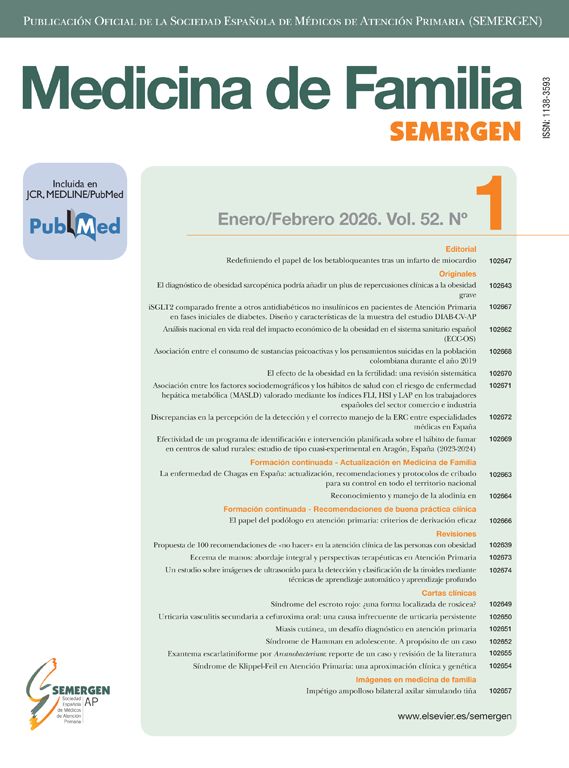Presentamos el caso de bloqueo auriculoventricular completo asintomático en una mujer de 57 años, con valvulopatía mitral de aspecto reumático y válvula aórtica engrosada con función conservada, descubierto por ecocardiografía.
La paciente fue remitida por su médico de familia al objetivarse de forma casual una bradiarritmia. Permaneció estable durante su ingreso y posteriormente fue remitida al Servicio de Cirugía Cardiovascular para colocación de marcapasos cardíaco definitivo.
El bloqueo auriculoventricular completo conlleva signos y síntomas de gasto cardíaco reducido, síncope o presíncope, angina y palpitaciones por taquiarritmias ventriculares, aunque en algunos casos puede presentarse de manera asintomática.
Describimos el caso de una paciente con bloqueo auriculoventricular de tercer grado asintomático.
We present the case of an asymptomatic complete A-V block in a 57 year old woman with rheumatic type mitral valvulopathy and thickened aortic valve with conserved function, discovered by echocardiography.
The patient was sent by her family practitioner when he casually observed bradyarrhythmia. She remained stable during her admission and was then referred to the Cardiovascular Surgery service for the placement of a definitive heart pacemaker.
The complete A-V block has signs and symptoms of reduced heart output, syncope or presyncope, angina and palpitations due to ventricular tachyarrhythmias, although it can be asymptomatic in some cases.
We describe the case of a patient with asymptomatic third degree auriculoventricular block.






